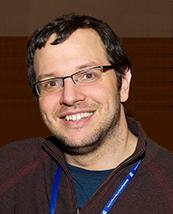Promoting Science One Post at a Time: An Interview with Dave Nussbaum

What significant changes have you seen over the years in how the media, the internet and now the blogs, have covered social psychology and behavioral science?
There are way more academic voices now – we have tried to amplify them on Character & Context, but it goes way beyond that. One of the key reasons those voices are important is that we have a very different set of incentives than journalists, especially the busy ones. We're aiming to get it right, and we're on the hook if we're wrong. There are certainly some great journalists out there writing about our science, but there’s only so much they can do. Some journalists are writing two or three or more articles every day, so they can't possibly dive too deep or too carefully into a particular topic. They are incentivized to get clicks, so it's no wonder that they run with the flashiest findings. On the positive side, we're more careful than we were before replication concerns hit. We've become more conservative, and that's largely a good thing, as long as we recognize the difference between scientific proof and informed opinion.
What have you enjoyed most about your role as editor for Character & Context and other blogs?
My favorite thing is that it has given me a front row ticket to some of the most interesting research that's going on. I’ve been able to have a conversation with the researchers themselves on a wide range of topics. Not only will they explain their research to me, but they’ll place it within the broader context of what they are thinking. The other great thing that happens is that I am able to act like an academic bumblebee. I get to cross-pollinate these ideas because I am engaging with so many more great minds than the average researcher gets to.
You have also played a significant role in SPSP's op-ed writing program by shepherding SPSP members through the process of pitching opinion pieces to major media outlets like the Washington Post and The New York Times. Why do you think is it important for our members to add their voices to these larger discussions?
It's important that we have a voice in the conversation. We have a way of looking at the world that's not well-represented. It's not more correct than others, but it contributes something valuable to the conversation. My goal is to get the psychological perspective to become intuitive to people, much in the way economists have managed to do with economic matters. I want the stories that people read to lead them to see the world and ask: What's the psychology here? To recognize, for instance, that this seems like a logical policy to me, but how are people likely to actually behave?
How has working with SPSP benefitted you professionally or personally?
SPSP has felt like home since I attended my first convention as an undergrad presenting my first poster almost two decades ago. The organization is made up of the people who do the research I admire, so I love having the opportunity to contribute in a way that I feel is meaningful and that I might be positioned to do effectively. It gives me a reason to connect with all these different researchers doing all this interesting work. When I discover an article that I find intriguing, I can just pop off an email to the author and more often than not they're more than happy to work with me on sharing it with the public. I can't think of a better way to get a broad and diverse education on the latest developments in the field.
When you are not juggling the roles of teacher, writer, editor, how do you like to spend your free time?
I'm not sure I know what free time is -- I’ve got two little kids that absorb pretty much any time that I don't spend working, which is a lot of fun but it's not exactly free time. The truth is that I feel incredibly lucky to be doing such a consistently interesting job and to have such tremendous flexibility in how I do it. It allows me to prioritize my family in a way that would otherwise be a lot more challenging. Also, I guess if I look at where my time disappears to, these past few years it's mostly been following politics. I'd be a lot happier I think when the time comes that it doesn't feel quite as urgent to do that anymore.
What advice do you have for the next editor for Character & Context?
I’m thrilled about the new team that’s taking the mantle at Character & Context and above all I’m pleased that there’s a whole team of editors (By the way, I’d be remiss not to give a big thank you to the many graduate students and post-docs who have worked as editors with me on the blog the past couple of years. They have improved the blog enabled it to cover more ground.)
Now with three people at the top, I’m excited to see their enthusiasm to use that capacity to take the blog to the next level, offering features that we haven’t been able to before. There are a lot of people in the field who have great things to share and are generous with their willingness to contribute to the blog, so I don’t think the next editor needs a lot of my advice. They just need to give those voices a little editorial guidance and put them out there for the world.
Keep up with some of Dave’s work at the Behavioral Scientist.

